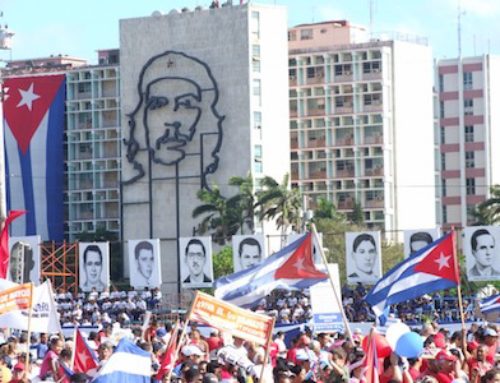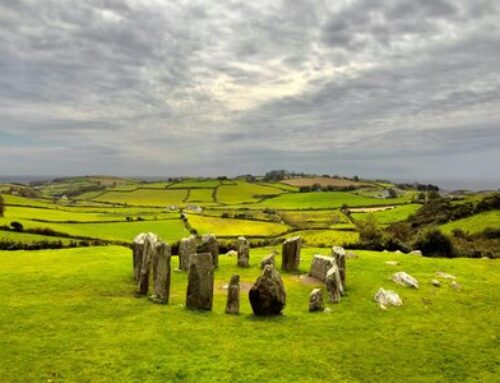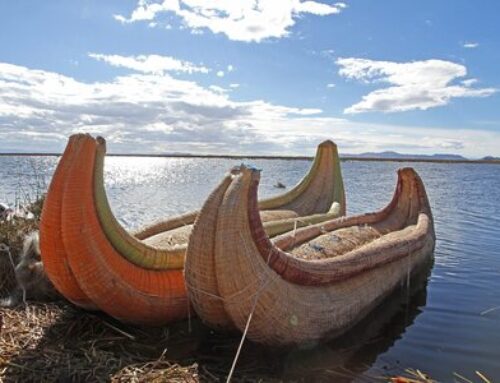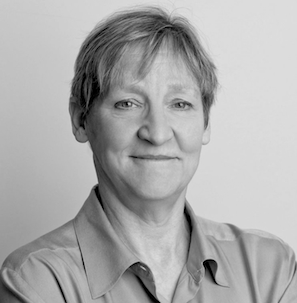 July 30 is the UN’s World Day Against Trafficking in Persons. We spoke with Carol Smolenski, the Executive Director of ECPAT-USA, a NYC-based branch of an international organization that works to end child sex trafficking. Below is Carol’s perspective gained from nearly 30 years of working on the issue. You’ll also find a link to the upcoming AltruVistas Colombia journey with the Greater Good Institute in March 2019, where travelers will learn more about anti-trafficking work, and a $200 donation goes to ECPAT for each traveler.
July 30 is the UN’s World Day Against Trafficking in Persons. We spoke with Carol Smolenski, the Executive Director of ECPAT-USA, a NYC-based branch of an international organization that works to end child sex trafficking. Below is Carol’s perspective gained from nearly 30 years of working on the issue. You’ll also find a link to the upcoming AltruVistas Colombia journey with the Greater Good Institute in March 2019, where travelers will learn more about anti-trafficking work, and a $200 donation goes to ECPAT for each traveler.
Hi Carol! Can you tell us about the history of ECPAT—how and when it formed, and how you became involved?
ECPAT International emerged in 1990 as a response to children being bought and sold in the sex trade in Asia. Research funded by the Ecumenical Council on Third World Tourism, a European group that focused on tourism issues and impact, showed that this type of trafficking existed partially to meet the demand of travelers. In response, a group of children’s rights activists from four Asian countries—Sri Lanka, Taiwan, Thailand, and the Philippines—went around the world inviting groups that worked on women’s, children’s, and human rights to be part of the campaign “End Child Prostitution in Asian Tourism.” They went across Europe and came here to the US; anywhere that was a “tourist-sending” country. After realizing the trafficking problem was everywhere, not just Asia, we started going by the acronym only, “ECPAT.”
I was involved from the very beginning. At the time, I was working for an organization called Child Fund, which worked on children’s issues internationally. When the pan-Asian group came to us, we created ECPAT-USA, and worked to focus on stopping the sex trade amongst US travelers. We also focused on ending US exploitation.
ECPAT had no money for a few years. Then Child Fund closed; and I came on as ECPAT’s sole staff person. Today, we have seven staff members. Plus, so many people continue to be involved: numerous volunteers, supporters, interns, and others.
ECPAT-International is still based in Bangkok. Now there are ECPAT members in over 90 countries. Every three years all the ECPAT groups convene. We’re very much still in a growth phase. In the last three years several members have come on board from Africa, where there has been a growing focus on the great need for our work. Africa has weak social safety nets due to its stage of development relative to the rest of the world, yet the growth and reach of the internet and mobile technology has made kids more vulnerable. This relationship between tech and exploitation is true everywhere in the world—nowadays, most “recruitment” happens online—and in Africa, everybody has a cell phone. Over 15 African countries have come aboard as ECPAT members. There are ECPAT members in Ethiopia, Ghana, Gambia, Malawi, Benin, Cameroon, Burundi, Rwanda, Mauritius, Mozambique, Nigeria, Sierra Leone, Liberia, Tanzania, Uganda, Zambia, and Zimbabwe. ECPAT is also seeking to bring in more participation from countries in North Africa and the Middle East.
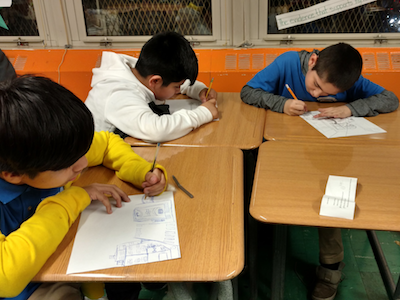
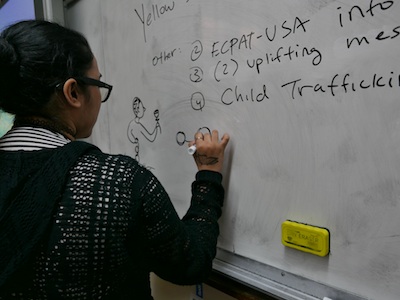
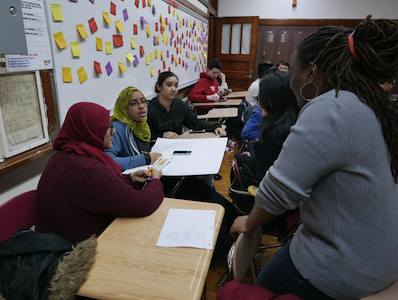
What are some of the current initiatives ECPAT-USA is working on? And what have been some of the measurable results you’ve seen in doing this work?
When you work on an issue for this long, you see tremendous change. In 1991, when we started, there weren’t ways to identify and protect exploited kids. There were no good laws on the books, and no services for children who’d been through these kinds of experiences. Law enforcement was still arresting kids for being sexually exploited. Today, in the US, most communities have awareness of the issue, as well as resources for sexually exploited kids. Most law enforcement is now coming around to assist and protect, rather than penalize.
ECPAT was the only group working on this issue in 1991. Now, there’s a huge community of organizations that work together to protect children.
In 2000 we saw the passage of the Trafficking Victims Protection Act. This was the first time that trafficking of persons of any age was made a crime in the US. Many states have now passed laws that make trafficking illegal on the state level as well.
Much of our work has been about trying to develop trainings and specific services simultaneously to changing laws. In the early days, it was really hard to bring these tracks—the growth in legislation and legal implementation as well as the growth in services—along simultaneously. For instance, in the ’90s, an exploited individual would be arrested, and because there weren’t any services, even though they were identified as a victim, they’d just end up in jail.
There are still tremendous gaps in our child welfare system to address, but things have improved to the point where now, most of our focus can be on prevention. We’re trying to expand prevention and education throughout US schools. Today, “recruitment” most often takes the form of meeting a trafficker or pimp online. We’re currently working in New York City schools and are seeking to create a national program around prevention education. We want kids to be able to identify, “That was a recruitment conversation.”
Can you talk about the CODE and how your work relates specifically to the travel industry?
The CODE is an international set of agreements for the travel industry. Depending on where a company is headquartered, that’s the country in which they sign up for the CODE.
All the large hotel chains—Hilton, Marriot, Wyndham, Choice, Hyatt—are now involved. Member companies are given access to training. For example, Marriot just signed the CODE this year, though they had previously started training. Over 370,000 staff members have now been trained in how to spot trafficking and what to do if you see an incident arising in your workplace.
This is not just an international issue. In a survey conducted last year by NYU, over half the hotels in the US have had human trafficking. You can view the report “No Vacancy for Child Sex Traffickers” under our Resources page.
And it’s not just hotels that need to be involved in prevention. We’re working to spread the world to travelers more broadly. We will be launching a new training program aimed at travel management companies and meeting planners. We’ve already seen the effectiveness of this. For example, a travel manager was at a conference in Mexico learning about trafficking, and on her way home she actually saw a teen who showed the signs…. And because of the training, she knew how to intervene, and helped out this trafficking victim.
You may have seen headlines last year about American Airlines signing the CODE. Two girls, 14 and 16 year old sisters, were checking in from Sacramento to New York, but they didn’t have ID, and the credit card that had been used to buy their tickets was flagged for fraud. The ticket agent saw the signs. They’d met a guy online. He was flying them to New York where he’d told them they were going to make a lot of money as models. Law enforcement tried to contact him, but his account was deleted.
We also provide resources to everyday citizens. It’s important to know what to do if you’re a traveler and you see signs of trafficking. We offer the brochure Know the Signs. Our website has the number for the National Human Trafficking Hotline: 1(888)373-7888. In an emergency, dial 911.
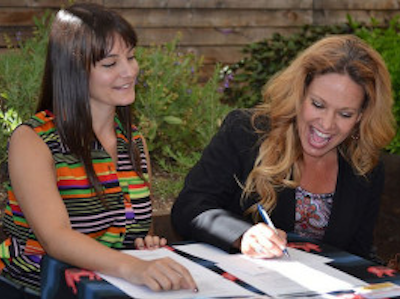
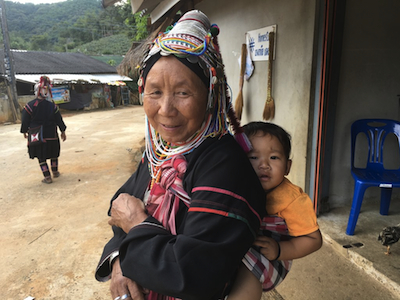
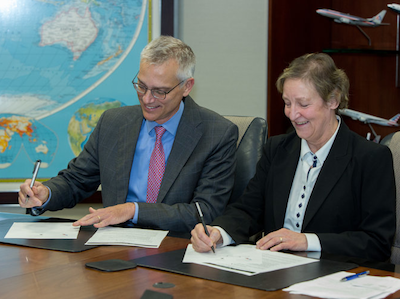
What is the history of ECPAT’s partnership with AltruVistas?
Malia first joined with ECPAT when she was with Global Exchange, where she was first travel operator to sign the CODE. With AltruVistas (also a CODE signee, the 13th) she has held fundraisers for ECPAT, gotten other companies to sign the CODE, and expanded awareness of our work.
Malia has also put together three advocacy journeys for us: two to Thailand, and one to Cartagena, Colombia. We’re in the process of organizing a board trip, perhaps back to Cartagena, for 2019. There’s also the upcoming Colombia trip with the Greater Good Institute, where travelers will meet with a number of our in-country advocacy partners, and a $200 donation to ECPAT is made for every traveler.
For those who care about and/or work on the trafficking issue, these advocacy journeys are so helpful in increasing understanding. They are truly eye-opening. You’re not in a conference room. You’re meeting all the on-the-ground groups that work with child trafficking and child protection. It’s an education you can’t get otherwise—even I got an education by going on these journeys, and I’ve been working on this issue for three decades.
It’s a collaborative partnership between ECPAT and AltruVistas. For instance, in Thailand, ECPAT had partners we were already working with, but Malia knew of other organizations. She connected us to the US Embassy, and to groups that work with street kids in Chiang Rai. A wide array of organizations work together to combat trafficking!
In Colombia, the ECPAT group is large and professional. They’ve been very proactive in getting companies to sign the CODE. Restaurants on the Colombia journey are all CODE signees. If you join the journey, you’re going to eat so well; Colombia has signed so many!

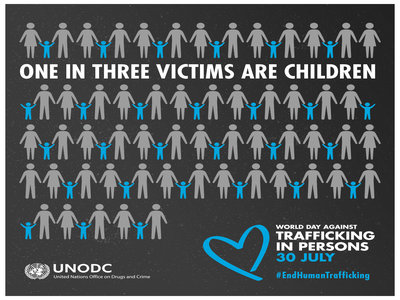
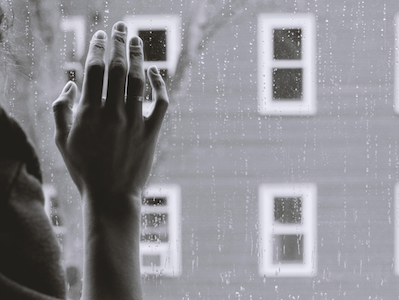
How can people get involved with ECPAT and with ending child sex trafficking?
If you’re interested in getting involved, we have a “Take Action” section on the ECPAT website. Beyond that: Protecting kids from trafficking at the local level is so important. Becoming a mentor to kid through an organization such as Big Brothers Big Sisters is invaluable. Kids who are vulnerable to recruitment are kids that don’t have what they need in their family life at home. Kids who are vulnerable are kids that don’t feel they are cared for.
Recruitment by a pimp is often a “grooming period” where the pimp says they offer love and care, and talks about all they will do for the child or teen.
If you can give an at-risk kid care—letting them know someone is there for them—that goes for miles in terms of reducing their vulnerability. Helping to counter trafficking doesn’t necessarily mean you need financial resources—the long-term emotional resources you can provide are invaluable too.
If you do want to financially donate, ECPAT has a general fund. It’s also possible to earmark donations for our different programs:
-Travel & Tourism—Our work with the CODE and industry trainings.
-Youth Work in NYC schools—We offer three workshops: Healthy Relationships, Online Safety, and Sex Trafficking. We’re seeking to take this work in schools national.
-Policy & Legislative Work in Washington DC to protect children.
Thanks, Carol. Do you have some words of wisdom for us for World Day Against Trafficking in Persons?
You know, it’s interesting—I always used to think that these “National Day of….” or “World Day of….” things were silly. But now I recognize that it really does function as a focal point for people talking about these important issues and raising awareness. So I am a firm believer that the World Day is important day. I hope there is a lot of coverage in the press and social media because awareness that human trafficking is a problem everywhere is still a case that has to be made.
Finally, I’ll leave you with an anecdote that illustrates the work we do here at ECPAT-USA. A woman is by a river. She sees a drowning child, and jumps in and rescues them. Then she sees another child, and jumps in and rescues them too. Over and over again this happens. At the end of day, she says, “You know, I’m going to go up the river and find out why all these kids are falling in, and I’m going to do something about it.”
Colombia
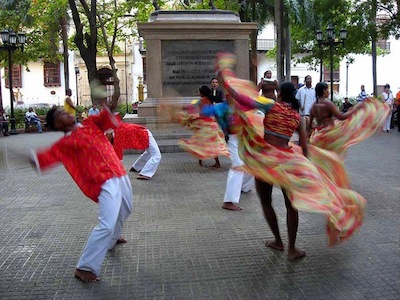
March 10-18, 2019
$2,915–$3,495 double occupancy based on # of participants
single supplement $450
includes a $200 tax deductible donation to ECPAT-USA
Sponsoring Organization: Greater Good Institute
Availability: OPEN

